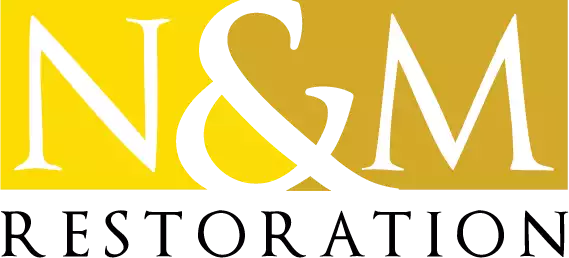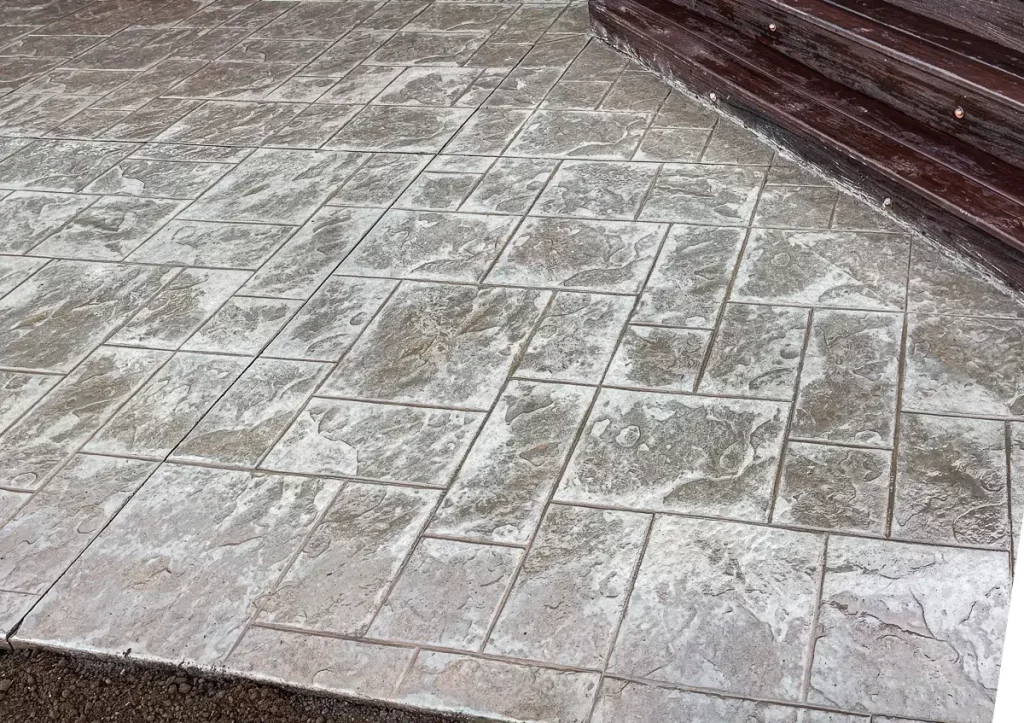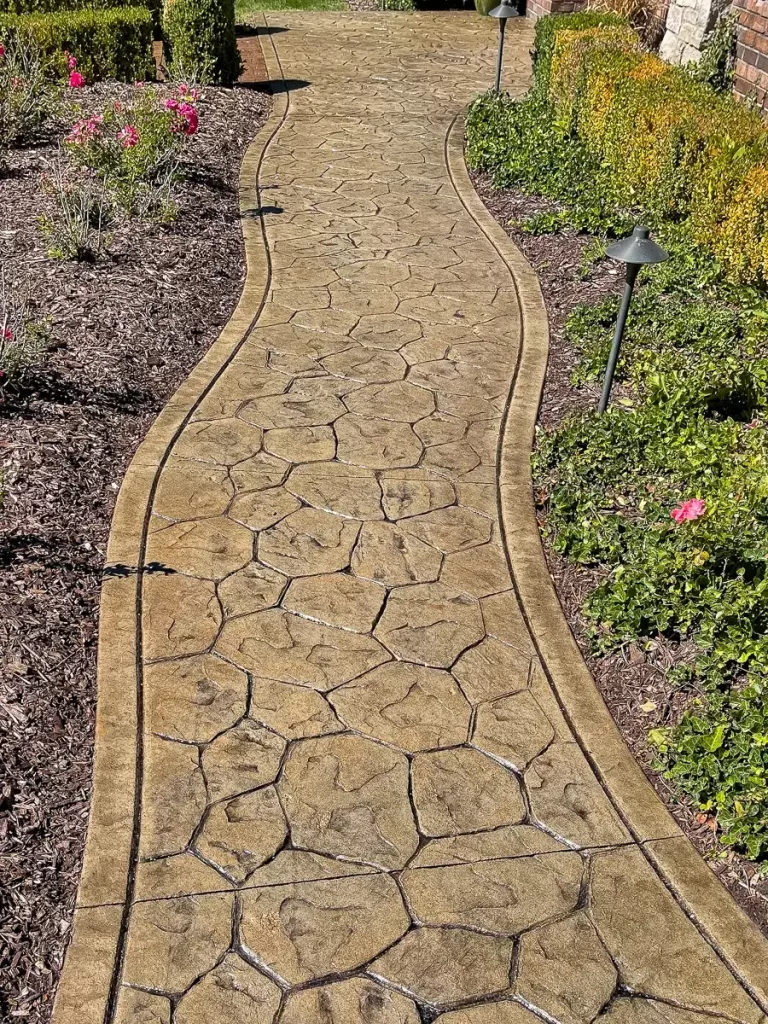What is Stamped Concrete?
Stamped concrete is a textured, embossed, or patterned concrete designed to resemble brick, slate, flagstone, stone, tile, and even wood. It’s cost-effective and offers unmatched durability, which makes it a popular choice for patios, driveways, and walkways.
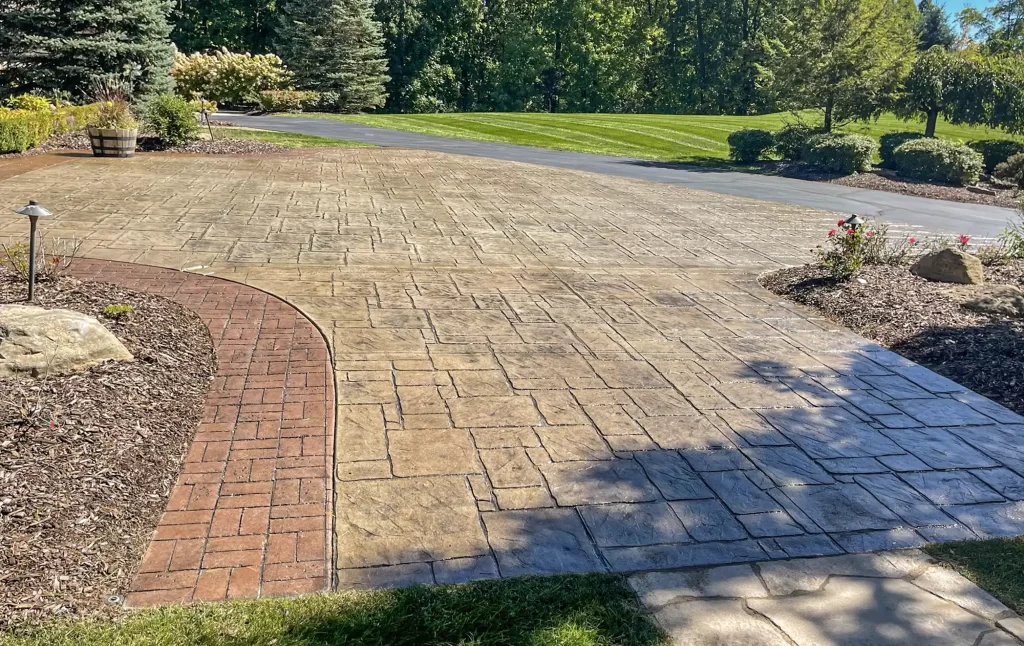
Dive into Colors: Making the Right Choice
The choice of stamped concrete color can transform your space, bringing life and character. Here’s a dive into the colorful world:
- Integral Colors: Mixed into the concrete before pouring; these give a consistent color throughout. Popular shades include reds, browns, and earth tones.
- Color Hardeners: These are applied to the surface, offering a vibrant hue and increasing the strength of the top layer. They come in a broad spectrum, from bright blues to subtle grays.
- Antiquing Release Agents: These dual-purpose agents prevent the stamping mats from sticking to the wet concrete and impart a secondary color, giving an aged look to the design.
- Tinted Sealers: For an extra layer of color and protection, tinted sealers can be applied after the concrete has cured.
Tip: For a natural look, choose a stamped concrete color base that mimics the natural stone you’re trying to replicate and a secondary color for highlighting.
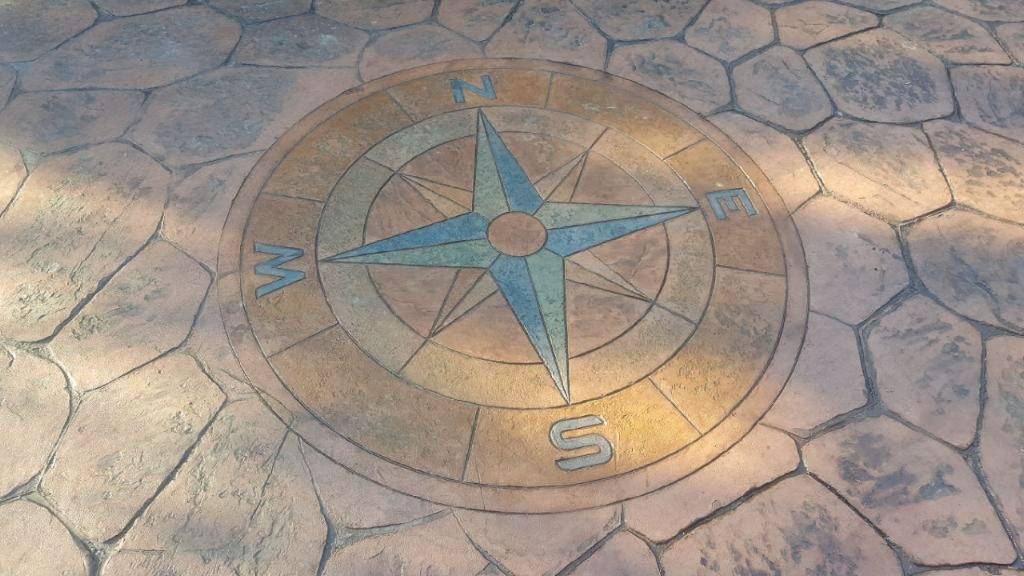
Pattern Selection: The Art of Stamped Concrete Design
Patterns bring the color to life. Here are popular choices:
- Cobblestone: Perfect for driveways or pathways, this classic look imparts a European charm.
- Wood Plank: Love the look of wood but want the durability of concrete? This pattern is for you.
- Slate: This looks sophisticated and is often used for patios or pool decks.
- Flagstone: Irregular shapes give a natural, rustic appearance.
- Brick: It provides an age-old classic look, perfect for walkways or patios.
Tip: Consider the architecture and style of your home. A modern home might benefit from sleek, large slate tiles, while a country cottage might feel cozy with a cobblestone walkway and a stamped concrete design.
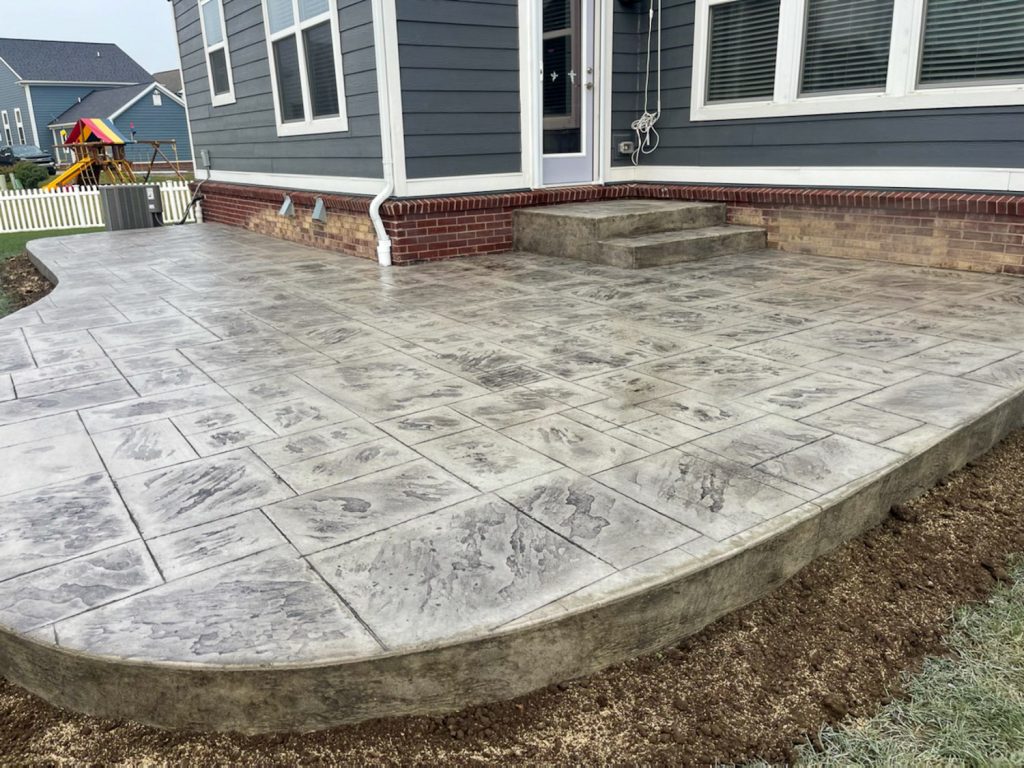
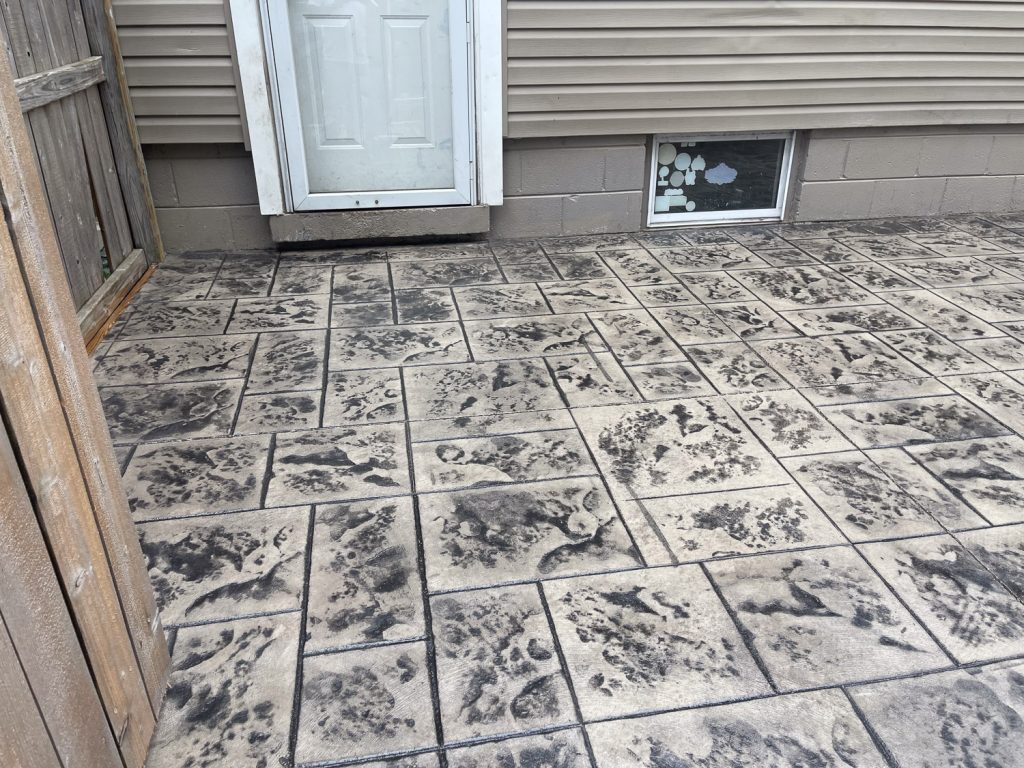
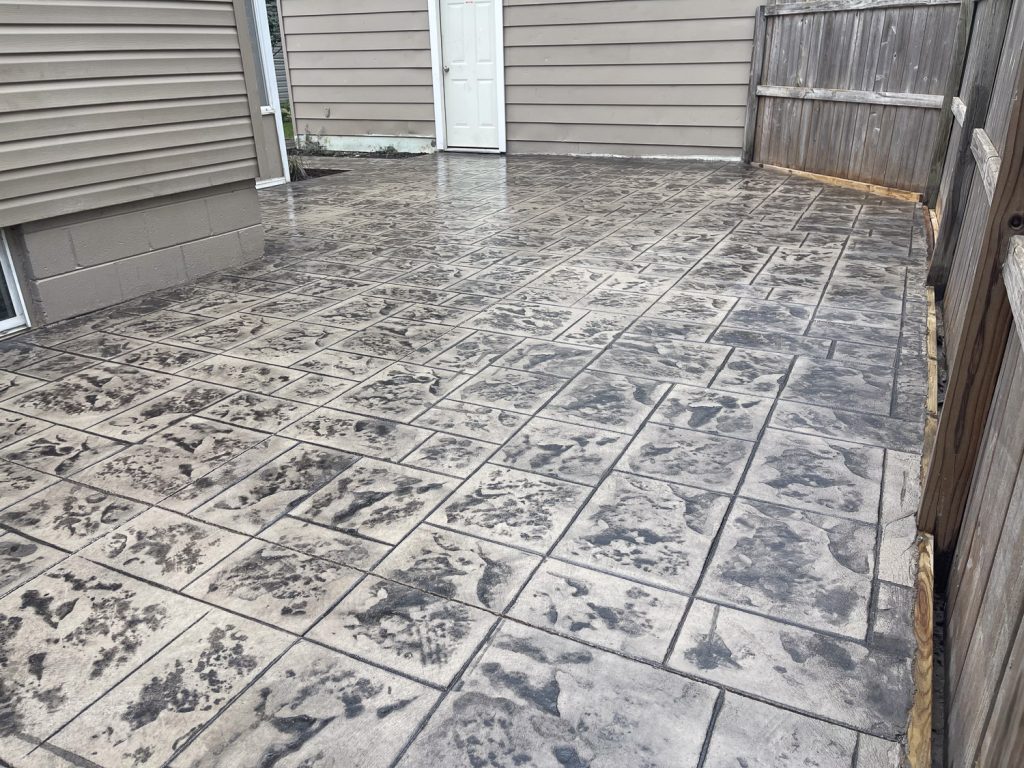
Enhancing the Look: Additives and Effects
- Textured Mats: Add texture to the surface, mimicking the natural imperfections of stone or brick.
- Saw Cutting: Saw cuts can create expansion joints that blend seamlessly with the design after stamping.
- Borders: Different patterns or color borders can frame and accentuate the main pattern.
Maintenance and Longevity
Stamped concrete is durable, but like any other surface, it requires maintenance.
- Sealing: A quality sealer protects the concrete from stains and weathering and enhances its color. Re-seal every 2-3 years for maximum longevity.
- Cleaning: Regularly sweep and wash with mild detergent. Avoid harsh chemicals.
Benefits of Stamped Concrete Design
- Versatility: Unlimited designs and colors.
- Durability: Last for decades with proper care.
- Cost-effective: Replicates high-end materials at a fraction of the cost.
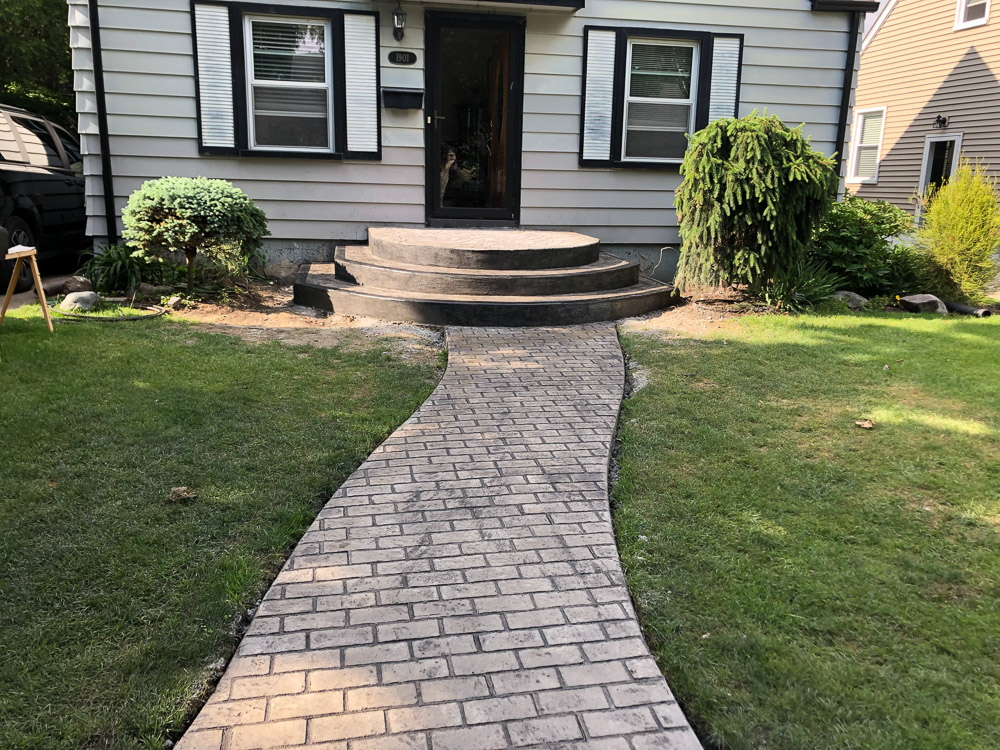
Art & Utility
Stamped concrete design is the amalgamation of art and utility. With its endless design possibilities, it caters to a space’s beauty and functional needs. You can transform your project into a masterpiece by making informed color and pattern choices. Whether you’re looking for the rustic charm of cobblestone pathways or the sleek elegance of slate patios, stamped concrete is the answer. Dive in and let your creativity flourish!
